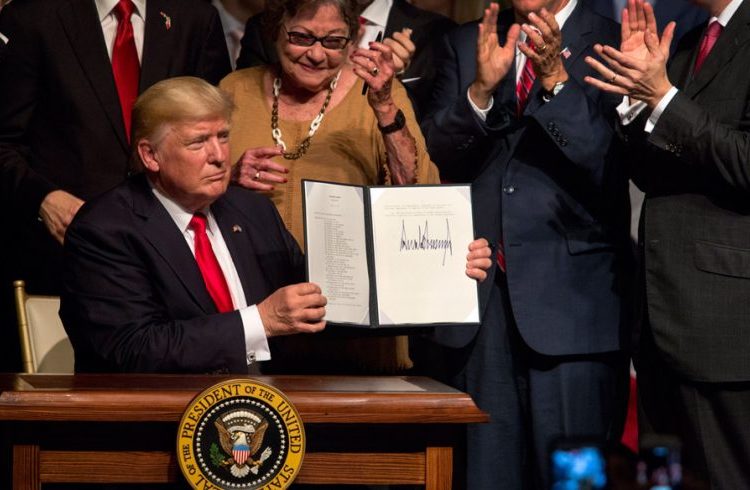In recent days, while participating in a public debate in Havana about the future of Cuba-U.S. relations, I affirmed that President Trump would act more as a businessman than as a politician in relation to our country. This was then based on an appraisal of his career and recent events. Coinciding to a point with presentations by some U.S. panelists and Cuban specialists present in the forum-debate, this idea was based on several facts:
– The demonstrated affiliation to big business interests during his professional life, an event confirmed during his presidential campaign and first months as president.
– The relative silence on relations with Cuba, only interrupted a few times to meet the expectations of political sectors of Miami’s Cuban historical exile.
– His recent commercial-antiterrorist international move of making a multimillion sale of weapons to Saudi Arabia, contrary to Israeli interests.
– The suspension of 20 million dollars in financing for the Cuban opposition, included in his draft budget for 2018 in Congress.
– The growing pressure from business sectors and governments of Union states, interested in trading with Cuba; in addition to other sectors, in favor of the normalization of relations with our country.
However, any unexpected course of events could be expected, given the unpredictable character of the U.S. president.
Diverse analysts agree on how little the changes proposed by Trump can harm Cuba, since the majority of Barack Obama’s progressive measures are still in place. There is also certain consensus in pointing out that the new policy will not benefit Cuban entrepreneurs.
As Foreign Minister Bruno Rodríguez stated, any damage to the state economy would damage the entire population. Therefore, Trump’s proposal is condemned to failure.
There are other interesting aspects of the matter, looking at the Cuban government:
– The socioeconomic reforms of recent years are not concessions to the U.S. opening. They are part of a process to try to attain a development more in keeping with contemporary times, despite its slow and little coherent march on occasions.
– Both sides’ excesses cause limitations in the full exercise of civic rights in Cuba. This is added to the mistakes of the leadership on the island and the predominance of an authoritarian style, which is partly encouraged by the condition of a besieged country. These elements conspire against a deliberative climate and of advance in society, and fuel repeated arguments from abroad.
– Cuban politics has frequently been more reactive than proactive, as in the case of Trump’s announcement.
A different way of acting, directed at promoting decisive advances in Cuba’s comprehensive development could be based on the following aspects:
– A bold economic policy with sufficient and balanced incentives for U.S. investment in the country. In exchange, Cuba would receive advantages in pending matters like the lifting of the blockade, the closing of the Naval Base, etc., as long as national sovereignty is respected.
– A speeding up of the reform processes that ensure the exercise of solidarity enterprising and not capitalist through enterprise laws suitable to a multiactoral and socialist content.
– Reorganization of the military business sector as a state sector of the economy.
– Decentralization of the state enterprise with greater grass-root autonomy and processes with the participation of the workers and citizens in the decision making, as well as in the distribution of the profits on an enterprise and local development level.
– Advances in the policy of currency unification not detrimental to the population’s interests.
– Improvement in the payment for their work and in terms of social security for all sectors of the population.
– Consideration of openings on issues of civil rights such as: bigger spaces of expression in the official and alternative media; greater participation by the population in deliberative actions on policies and governmental control.
– New electoral law with greater freedom for the proposition of candidacies and of election.
– Greater separation of the Party and Government functions in all levels of society.
– Advance toward a constituent process that presents the necessary changes, according to the socialist future agreed on in Cuba.
These, among other proposals, would place Cuba in an advanced and bold position in the face of diverse international claims, safeguarding the banners of national sovereignty.










